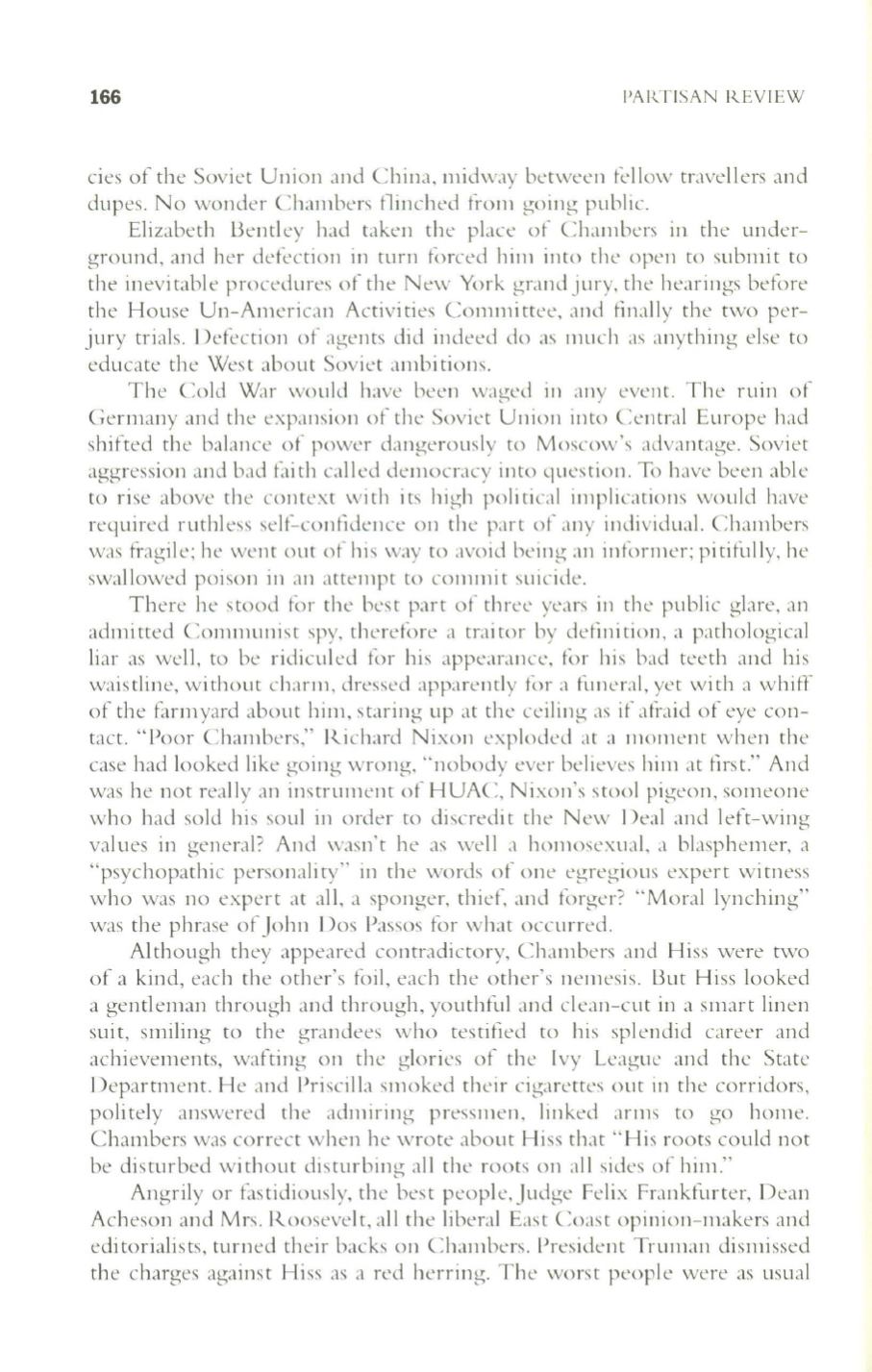
166
PARTISAN R.EVIEW
cies of the Soviet Union and China, midway between fellow travellers and
dupes. No wonder Chambers flinched from going public.
Elizabeth 13entley had taken the place of Chambers in the under–
ground, and her defection in turn forced him into the open
to
submit
to
the inevitable procedures of the New York grandjury, thc hcarings before
the House Un-Amcrican Activities Committee, and fInally the two per–
jury trials. Defection of agents did indeed do as much as anything else to
educate the \Vest about Soviet ambitions.
The Cold War would have been waged in
;lIlY
event. The ruin of
Germany and the expansion of the Soviet Union into Central Europe had
shifted the balance of power dangerously to Moscow's advantage. Soviet
aggression and bad f;li th call ed democracy into qucs tion . To have been able
to rise above the context with its high political implications would have
required ruthless self-confidence on the part of any individual. Chambers
was fragile; he wellt out of his way
to
avoid being an inflmner; pi tifully, he
swallowed poison in an attempt to commi t suicide.
There he stood for the best part of three years in the public glare, an
admitted Communist spy, therefore a traitor by defInition, a pathological
liar as well, to be ridiculed ft)r his appearancc, ft)r his bad tceth and his
waistline, without charm, dressed apparently for a fimcral, yet with a whifT
of the farmyard about hilll, staring up at the cciling as if afl·aid of eye con–
tact. "Poor Chambers," Richard Nixon exploded at a moment when the
case had looked like going wrong, "nobody ever bclieves him at first." And
was he not really an instrument of HUAC, Nixon's stool pigcon, someone
who had sold his soul in order to discredit the Ncw ])eal and left-wing
values in general? And wasn't he as well a homosexual, a blasphemer, a
"psychopathic personality" in the words of one egrcgious cxpert witness
who was no expert at all, a sponger, thief, and fc)rgcr
l
"Moral lynching"
was the phrase of John Dos Passos for what occurrcd.
Although they appearcd contradictory, Chambers and Hiss were two
of a kind, each the other's foil, each the other's nemcsis. L3ut Hiss looked
a gentleman through and through, youthful and clean-cut in a Slllart linen
suit, smiling
to
the grandees who testified to his splendid career and
achievements, wafting on the glories of the Ivy League and the State
Department. He and Priscilla sllloked their cigarcttcs out in the corridors,
politely answered the admiring pressmen, linkcd arIm to go home.
Chambers was correct when he wrote about Hiss that "His roots could not
be disturbed without disturbing all the roots on all sides of hilll."
Angrily or fastidiously, the best peopl e, Judge Fel ix Fran kfurter, Dean
Acheson and Mrs. R.ooscvelt, all the liberal East Coast opinion-makers and
editorialists, turned their backs on Chambers. Presidcnt Truman dismissed
the charges against Hiss as a red herring. Thc worst people were as usual


